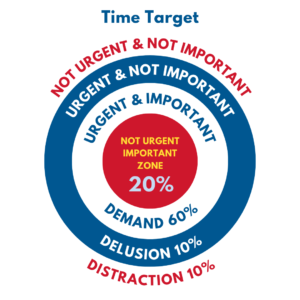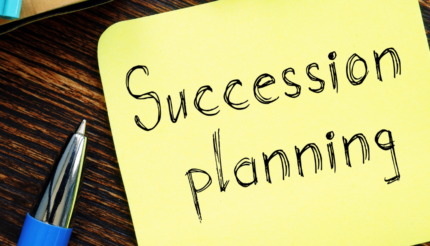Many of the people we speak to, no matter their specific goals, usually want to create more time for themselves. Of course, creating more time is not possible. We all have 24 hours a day and seven days a week, but it’s all about how we use the time and managing it effectively.
You must firstly accept that there will always be more to do than the time we have available. Getting better at time management is not just about giving ourselves more time as, inevitably, we’d fill this with other tasks. You must recognise why you want to improve your time management; it’s likely because you want to achieve your big dreams. By recognising the purpose and realising it is so you can achieve your bigger life goals, you’ll be more motivated to improve how you use your time.
Time management is a crucial life skill, and to make better use of your time (so you can achieve your goals), there are four key skills to master:
- Analysis – i.e., how do we currently spend our available time?
- Planning – both long and short term.
- Delegation – more on this in a future blog!
- Self-management – because we cannot manage time, it’s down to us to make the best possible use of our available time.
We use these skills within the following process, WWHH:
- What tasks to do
- When to do tasks
- How to organise
- How to ensure it gets done, i.e., discipline….
1 – What tasks to do
To figure out the most effective way of doing tasks, you must analyse how you currently spend your time. To do this, fill out a time log. There are many apps and templates available that will allow you to conduct a time audit, but the principle is the same for all of them – take note of what you do on a day-by-day basis for a couple of weeks. Record how long each task takes you; by doing this, you’ll see what your diary usually looks like. From this, you can reflect and create a default diary (more on this later), allowing you to do things in a planned fashion and make the most effective use of your time.
When analysing how you use your time, it’s important to note you can only do one thing at a time and when you’re in the middle of a task and another comes up, you must consider the four D’s:
- Do it (stop what you’re doing to address the interruption).
- Delegate (more on this in a future blog).
- Defer (put it on the list of things to be done later).
- Dump it (decide it isn’t worth your time or effort).
2 – When to do tasks
Introducing Action Coach’s Time Target

The Time Target above is based on Stephen Covey’s time management matrix and breaks down tasks depending on their urgency and importance.
- The outer ring of the target is tasks that are neither urgent nor important (e.g., some emails, distractions).
- The next ring is tasks that are urgent but not important (unmanaged interruptions, activities that mean you leave work thinking you’ve been very busy, but you realise you haven’t done anything of value).
- The inner ring is tasks which are urgent and important (dealing with demand as soon as it arises – some people’s entire job will be this).
- Bullseye is tasks that are important but not urgent (strategic planning, developing key relationships, training and developing people, developing and educating yourself, looking for new opportunities).
Most people find they’re spending majority of their time on tasks which fall into the urgent and important category. But by conducting a time audit, you can see how you’re spending your time and with a default diary, organise your time to make better use of it…
3 – How to organise
A default diary is a fantastic way of better organising your time as it helps you identify what tasks you should be doing and allows you to diarise them and do them at the best possible time.
Once you’ve conducted your time audit and filled out a time log, you’ll have an in-depth understanding of how you use your time. From this, reserve space in your calendar for the tasks you do regularly and choose times when you’re most efficient. Start with your ‘big rocks’ and then input your remaining tasks. Organising your diary this way will ensure you have set time aside for the things you typically forget or neglect (such as bullseye tasks).
For example, Bill has time set aside for coaching sessions, development, and team meetings, as well as diarising his lunch break and time to relax etc. By diarising everything, you’ll keep yourself accountable and ensure you manage your time better.
To download your default diary template for you to fill out, click here.
It’s important to plan your diary for the long and short term. We recommend balancing your goals and setting goals for the following time frames:
- Five-years
- 12-months
- 90-days
- Weekly
- Daily
Therefore, when planning, you can consider all your goals, ensuring you’re more likely to achieve them.
Ask yourself – when were you the most productive last year? Most people find it’s the day or week before they go on holiday, as you’re trying to get things organised before you leave. Imagine if you could be this productive every day? By planning the different timeframes and setting goals, you’ll simulate the same experience of getting things done before you go on holiday, making you plan better and motivating you to work hard to achieve a big goal before a deadline.
4 – How to ensure it gets done
You need the self-discipline to ensure you execute the tasks in your default diary. You must stick to your diary and ensure you’re not abandoning your plan and returning to old habits. To help you keep to your plan, it’s important to delegate. In a future blog post, we’ll be talking about how to delegate effectively and how to ensure you hire a fantastic team to which you can delegate work.
To help with discipline, when building your goals, share them with someone else. This could be another business owner, your team, your business partner, your partner, or a friend – the list is endless!) It will help keep you accountable and more motivated as it’s harder to let others down than it is yourself.
Need help getting started?
If you need a helping hand analysing how you use your time and helping you to manage it more effectively, book a call with Bill, who can act as an honest friend and give an impartial view on how you’re using your time.
Click here to download your default diary and start better organising your time.




